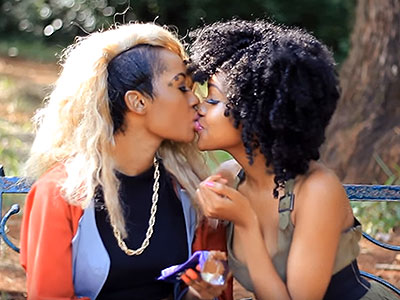SA’s Film and Publications Board gets in bed with Kenya’s homophobic censors

Sipho Risibia, FPB Chief Operating Officer
South Africa’s Film and Publications Board has seen it fit to align itself with Kenya’s homophobic publications board, which regularly attacks the LGBTI community and the right to freedom of speech.
According to Daily Nation, the Kenya Film Classification Board (KFCB) on Thursday signed a memorandum of understanding with South Africa’s Film and Publications Board (FPB) “that fosters common approaches in online content regulation.”
The move comes shortly after the Kenyan censors attempted to ban the Same Love music video from YouTube. They claimed that the clip, which supports LGBTI equality in Africa, “promotes” homosexuality and contains nudity and pornography (which it does not).
The Chief Executive of KFCB, Ezekiel Mutua, warned that “Kenya must not allow people to become the Sodom and Gomorrah through psychological drive from such content.”
YouTube has quite correctly refused to take the video down.
The KFCB has actively played a role in clamping down on freedom of expression in Kenya, often when it comes to LGBTI issues.
In 2014, the acclaimed Kenyan LGBTI film Stories of Our Lives was banned by the KFCB for “obscenity, explicit scenes of sexual activities and [for promoting] homosexuality, which is contrary to [Kenya’s] national norms and values.”
The film’s executive producer was also accused of shooting the film without a license and faced up to five years in prison. The case against him was later dropped by the state.
The two entities have also found common ground in the “threat” of American streaming service Netflix, which was recently launched in South Africa.
The FPB has given Netflix 14 days to comply with local regulations or face sanctions.

A scene from the banned Same Love music video
“Our values are different from the American values and their 16-year-old is not necessarily our 16-year-old and that’s why they must re-rate the films in conformity with our standards,” Sipho Risibia, FPB Chief Operating officer (COO) told the Standard.
The KFCB also threatened to block Netflix in Kenya, calling it “a threat to our moral values and national security.”
Always eager to demonstrate its clout and using the boogeyman of protecting children from pornography, South Africa’s FPB has been accused of trying to censor the internet locally through its “Draft Online Regulation Policy document.”
In 2008, the FPB was slammed for banning the film XXY, about an intersex teenager, from being screened at the Out In Africa Film Festival, claiming that it contained scenes of child pornography.
Now, it appears that the FPB believes that solidarity with other African bodies is more important than its constitutional obligations to protect freedom of speech and the rights of all LGBTI people, no matter where they live.
Mambaonline has written to the FPB, requesting comment.
I smell religion behind this. And it stinks